The first women doctors didn’t practice medicine in the UK until the 1850s, and even then, they had a difficult time, barely recognised as clinicians and not respected by their male peers. But they persisted and opened the doors for other women to follow them. Probably unsurprising in a country where women had no real status, once married, they owned nothing. No wonder so many women resorted to trickery or lives without men in order to have some money of their own.

The First Women Doctors
by Telesto
The first women doctors didn’t practice medicine in the UK until the 1850s, and even then, they had a difficult time, not respected by their male colleagues.
Women doctors are commonplace in our hospitals nowadays, and not just in the Western World, but it wasn’t always that way. It wasn’t until 1850 that the first woman doctor practised medicine in the UK, but if you consider that most women didn’t get the vote until 1928, it probably wasn’t that bad. To put it in context, we women were just chattels back at the start of the nineteenth century. If we married, whatever we owned became our husband’s property. The world was very different in those days. Nevertheless, the ones that tried to study medicine in the West had a pretty hard time of it.
In fact, I’ve just lied to you about the first woman doctor. It was actually Margaret Bulkley, who posed as a man, James Barry, for 46 years. She successfully joined the army as a surgeon in 1813, after her family helped her with a plan to enable her to join up as a man. It wasn’t all plain sailing for Bulkley/Barry, who even went through a court martial at one point, and improved standards for hygiene so much that the soldiers returning to the Cape Colony, where she was based, had the highest recovery rate for the whole Crimean war. She died of dysentery in 1865 and it wasn’t until then that the truth was discovered.
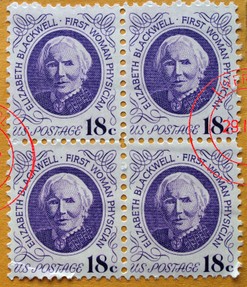
Rewind 18 years to the United States. After much struggle, prodding and poking (no pun intended) English-born Elizabeth Blackwell was finally accepted into medical school in October 1847. Back then it was called Geneva Medical College but is now known as Hobart College, located in upstate New York. She only got in by chance. The faculty couldn’t – or wouldn’t – make a decision about her application, so they put it to vote of the 150 strong male students. If one voted against her, Elizabeth would not have got in. The male students thought it was a joke, and she succeeded. Elizabeth had decided to study medicine having seen a friend die of cancer; she thought that women would be able to provide a better level of care.
It took time and perseverance, but Elizabeth became the first woman to obtain a medical degree in the US on 23 January 1849. She decided to continue her studies in Europe; tried Britain (to no avail) so then decided to go to Paris. She was treated with the same disdain there as she had been in the US, and sadly, whilst treating a child with a form of conjunctivitis, contracted the infection and lost her eye, thus losing any chance of ever becoming a surgeon. She joined St Bartholomew’s in London, but returned to America in 1851.
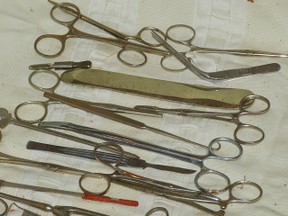
Elizabeth travelled backwards and forwards between the US and England over the next so many years, and, because of a clause in the Medical Act enabling doctors who had studied overseas to practice here, she was able to be admitted to the General Medical Council’s Register in January 1859. It was during this time that she met, and became mentor to, Elizabeth Garrett Anderson.
Born Elizabeth Garrett, in Whitechapel, East London, one of twelve children, Garrett’s father was wealthy enough to provide his children with a good education. Garrett decided to become a doctor after meeting with Blackwell and Emily Davies, a suffragette. Garrett encountered the same type of difficulties as Blackwell, and decided to enrol as a nurse at Middlesex Hospital. She took the opportunity to attend lectures for the male medical students, but was barred because they complained. Still determined to become a doctor, she studied the Society of Apothecaries exams, which enabled her to obtain a certificate to practice medicine in 1865. Strangely enough, after this, the Society changed its rules to prevent other women from becoming doctors in this way!
Although she was able to set up a dispensary for women and became a visiting physician for the East London Hospital, where she met James Anderson, whom she married, and with whom she had three children, this was still not enough for Garrett. She still wanted to obtain her medical degree. She learned French and travelled to Paris, where she qualified, then returned to England, but the British Medical Register refused to recognise her degree.
In 1872, she founded the New Hospital for Women in London, later renamed to Elizabeth Garrett Anderson Hospital for Women. It was originally staffed wholly by women, although before it closed in 2008, male staff were allowed, but women were still given the option to be treated only by women medical staff. Elizabeth Blackwell was appointed Professor of Gynaecology at the new hospital.
Garrett Anderson continued her struggle to have women accepted as doctors, and, eventually, in 1876, and act of parliament was passed to allow women to become doctors. In 1883, she was appointed as dean of the London School of Medicine for Women, which she had helped to found.
Both Garrett Anderson and Blackwell paved the way for the many women doctors we have practising medicine today.
You might also like
Myths Uncovered about Southern StereotypesHollywood, politics, the media, and others choose to paint Southerners as dum...
Newly Single, Now What?Newly single and struggling? Things you can do to ease the transition from be...
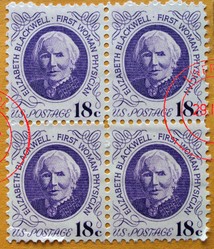







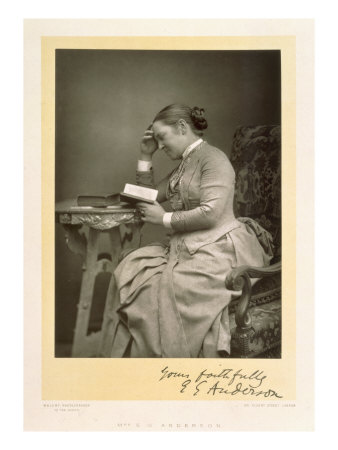
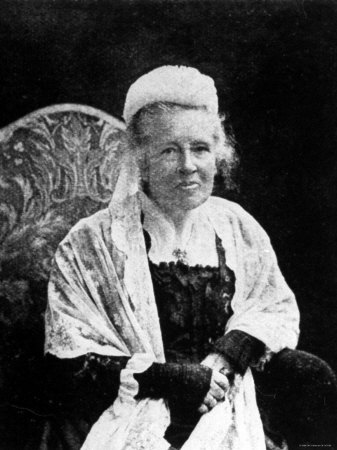

 Identity Theft and How it Feelson 02/01/2015
Identity Theft and How it Feelson 02/01/2015
 Barts Hospital - a National Treasureon 01/24/2015
Barts Hospital - a National Treasureon 01/24/2015
 Urban Foxeson 01/11/2015
Urban Foxeson 01/11/2015
 How do you know which hosting platform to choose?on 01/03/2015
How do you know which hosting platform to choose?on 01/03/2015



Comments
They certainly did! Amazing to think that things only really started to change in the last 100 or so years.
These women really did struggle, especially the one who dressed as a man. Women have more career opportunities now.
Rather low, and I might just need medication to counter the effects of ale!
Yes, that's very true. What do you think my chances of getting the local NHS hospital to administer meds with ale? :-)
A lot of the accusations were sheer nastiness and local grudges and unconnected to medicine. But there was much lore among women about illnesses and their cures. Women used to make salves and tinctures, and they brewed mead and ale which were used as the vehicle for administering medications. Women also nursed, whereas academic male doctors never did.
Thank you Frank, I appreciate your comments. You're right, women have been practising medicine for a long, long time, and I believe, although won't swear to, this is why some were treated as witches, because they knew things that others didn't. My grandmother had a good range of "home remedies" too. I always remember that if we were ever ill, she'd look at our tongues... We now the yellow colour is a sulphur build up, but she was adamant that was part of the problem.
Yet again, another good article from you.
We often overlook that women were practising medicine for millenia. In most societies women were responsible for collecting and dispensing herbs. In the Middle Ages the woman of the house was expected to have a herbal stock to dispense medicine to her family. In large manor houses the lady of the manor was expected to take responsibility for the herb garden and the preparation of cures. The village witch [wise woman] was an expert in herbal cures, wielding lore that was passed down for millenia to initiates. [My great grandmother was one, though in a town not a village.] Such women were rarely witch hunted, as so many loved and needed them. Women also took responsibility for the treatment of childbirth, from which males were traditionally banned. How many were birthed by the oldest and most experienced local woman [or the wise woman?] Millions, I suspect
There are no statistics available to enable comparison between these women and academic doctors, but the success of modern medicine is relatively recent. It is likely that such quiet and unobtrusive women saved far more people than the medics did.
I will tell a tale of the wise woman. Agnes Shorrocks, my great grandmother, dispensed herbs among the urban poor in Manchester. Once when my uncle, aged about six, suddenly developed severe pains, Agnes diagnosed the cause and went out for herbs. She mixed them up according the ancient lore, and he drank. Half an hour later he passed a bladder stone. Diagnosis and cure from a simple woman who could hardly read and write.